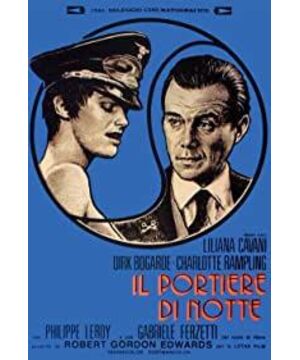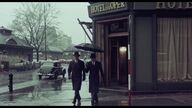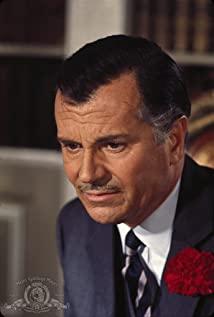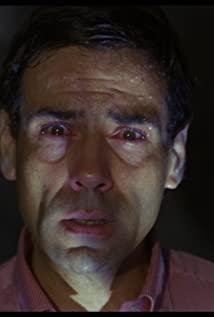Too. Literary and artistic films, so-called niche movies, those petty bourgeoisie holding small coffee cups with cappuccino are not elegant, sometimes they can’t even be elegant, such as "Pulp Fiction," which is very dirty ; "Psychedelic Train" is chaos. Even now, when many people watch literary films, it doesn't mean that you can understand them. Even if you understand, you may not accept them. Just like "Midnight Gatekeeper", a female prisoner in a Nazi concentration camp fell in love with a Nazi officer who sexually abused her all day. This story is somewhat similar to part of the plot in "Eastern Palace West Palace". Of course, it's just that, but the film also involves politics and the justice of its nepotism. The director is obviously sympathizing with the male protagonist who is a Nazi officer, otherwise he will not be given the right to love and be violent because of love. Regardless of whether he is in love because of the sadistic pleasure or vice versa, he is always in love, but also for love. Dead, so tragic and majestic is simply intolerable.
My understanding is that "Midnight Gatekeeper" is a romance film, but this is also the most terrible place. Who knows how to make romantic movies? Love is like a master key, which door cannot be opened? Which director can't be used? Even the revolution has to be mixed with love to incite young people to become enthusiastic. No wonder some people think that all literary works extol (spoil) love from different degrees. Without love, life is like a lame walking, and like playing mahjong. In short, it is awkward. Love is indispensable, so too many romantic films are shot, and they are almost flooded. In the face of this situation, there is basically only one solution, which is to make it extreme, personal, and incredible. "Midnight Gatekeeper" is relatively successful at this point. It cleverly turns love and morality into a paradox, and pulls morality and politics together, so that the edge of the subject of love is infinitely expanded, forming a The aura covers a wide range and puts pressure on the act of "love" itself. The greater the pressure, the deeper the love. To put it simply, the more you cannot love, the more you have to love, and the more you can show the greatness and invincibility of love.
If you love to watch literary films, look through your disc holder, you will find extremely many such films. "Lover" threatens love with nationality, race, and family status; "Guling Street Youth Murder" uses the perversion of age and personality to destroy love; there are countless successful gay movies: "Happy Together", "Lan Yu", "Yufadu" and "Brokeback Mountain", of course, use gender and ethics as bargaining chips, often the more bargaining chips in hand, the more moving the story, the more tragic and strong the love. Jie Chen commented on "Brokeback Mountain", called "Taboo", which was written as the sublimation of love brought by "taboo". Jie Chen said: The taboo is established, and the fascination begins. It seems that high-quality love cannot end well. It is not the two parties in love torturing each other, or the whole world torturing people in love.
Of course, there are also negative examples. For example, I have seen "Tokyo Niiwa" and Naoto Takenaka's work. I knew it was taken by a Japanese at first glance. It was extremely calm and calm to the point of almost no story. It was as colorless and tasteless as boiled water. "Tokyo Niiwa" actually describes the life of a husband and wife. Miho Nakayama plays a wife with a somewhat lonely personality. I think the best shot in the film is that the husband takes his wife to a high-end restaurant for dinner. After the meal, the two people are walking down the street, kicking an abandoned can, indifferently. The empty night, the dim street, the sound of rolling cans, is still monotonous, but it touches my heart. Calmness also has extremes of calmness, but between husband and wife, there is always more to each other than fierce struggle, which is not similar to love. Love is forgotten in the rivers and lakes. It is the battlefield after the gunpowder has blown away. No one knows that there have been wars and deaths here.
Life is another level. Life is a pacifist who doesn't advocate war and doesn't like blood and blood. If you can't, you won't love it. Those huge obstacles to social human ethics are like rubbish in life, and they are not worth mentioning. We live to learn how to live. The older we are, the more we know how to live, and we have excellent grades. Those ordinary middle-aged couples adhere to the Five Principles of Peaceful Coexistence. Today you clean the dishes and tomorrow I mopping the floor. There will be a small noise for three days and a big noise for five days. If they are not relieved, they will say: I want to divorce you! Just practice your throat. Only immature teenagers will make a serious promise: I will love you forever, the next, ten thousand years, forever and forever. I'm afraid I didn't say the deadline is too long, and I'm not sincere enough. In fact, a promise is to know that it is not credible, but it must be said that, like love, it will be forgotten in the end.
No wonder there are those people who lie in front of computer screens all day, watching movies, writing, weaving tragedies in the world that they know they can’t love, but still want to love. In fact, in ancient Greek literature, only heroes are worthy of tragedy, such as King Oedipus and Orestus, but unfortunately, they are all dead. People who are dead don’t know how to make movies and write novels...
View more about The Night Porter reviews











